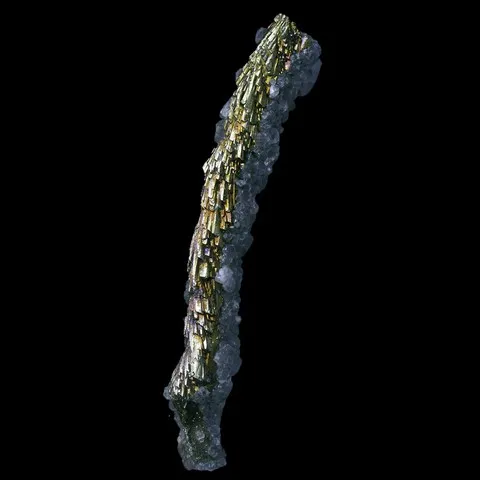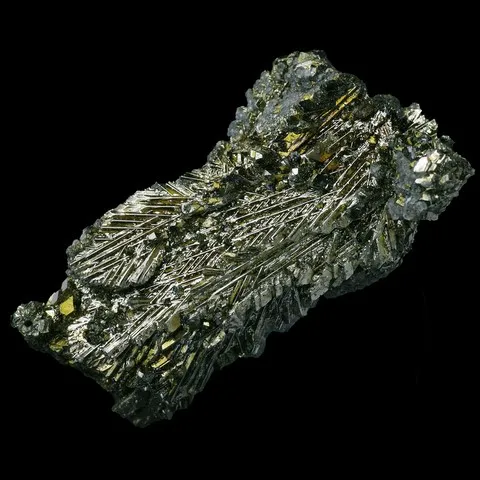MARCASITE
Class : Sulfides and sulfosalts
Subclass : Sulfides
Crystal system : Monoclinic
Chemistry : FeS2
Rarity : Common
Marcasite (sometimes written "marcassite") is a common sulphide. It is the orthorhombic dimorph of pyrite but it is however much less abundant than this one. Marcasite is formed at low and medium temperatures in acidic conditions and is found mainly in sedimentary contexts (limestone, marl, chalk) and hydrothermal veins. It also results quite frequently from the transformation of pyrrhotite. It is a mineral that owes its name to the Arabic word for pyrite. This term seems to come from the former province of Markhashi, north-east of Persia, where there were deposits of this mineral. Metallic luster, its color on fresh break is pale yellow in greenish or greyish shade, quickly turning pale yellow by exposure to the air which alters it by producing sulphates of iron and sulfuric acid. In old collections this has the effect of destroying the paper labels accompanying the samples. Marcasite is found in fibro-radiated spherical nodules (common in sedimentary formations), and in tabular crystals on {010} frequently twinned on {101}, giving repetition of pseudopentagonal assemblages known as "crest of cock". In the hydrothermal veins it is sometimes fibrous but more frequently massive and granular, associated with many other sulphides.
Main photo : Twinned marcasite from Cap Blanc-Nez, Pas-de-Calais, France
Marcasite in the World
Marcasite in France
In France, the Cap Blanc-Nez deposit (Pas-de-Calais), provided magnificent trees of multi-twinned crystals included in the chalk. The Cretaceous limestones of the Aube and the Marne yield spectacular ovoid nodules with radiated textures, sometimes of decimetric size. In the alpine limestones of Montalieu we can find the marcasite in replacement of some fossils.
Twinning ans special crystallizations
Several twins are known for the species, one is common on {101}, even contact twinning ; it can be repeated to form 5-pointed stars called "sperkise twinning". Another less common exists on {011}.
Remember that because of its sedimentary gemology, marcasite can replace some fossils, this is the case in Montalieu in Isère (corals, bivalves, belemnites, etc...).
Fakes and scams
Many fibro-radiated nodules found in French underground sediments are actually pyrite. Without crystals developed and without laboratory analysis, it is impossible to tell the difference with the naked eye.
Hardness : 6 to 6.5
Density : 4,887
Fracture : Irregular
Trace : Gray to black
TP : Opaque
RI : Not measurable
Birefringence : Not measurable
Optical character : Not measurable
Pleochroism : None
Fluorescence : None
Solubility : Nitric acid
Magnetism : None
Radioactivity : None






